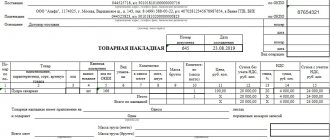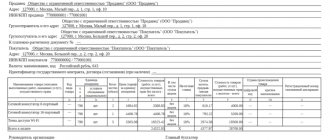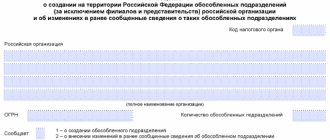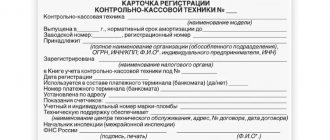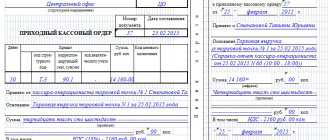Legal address is a mandatory detail for all organizations, which is indicated when submitting registration information to the Unified State Register of Legal Entities. Any company that is engaged in legal activities must have such an address. Since when registering legal entities they are assigned a OGRN and TIN, they will automatically be linked to the address indicated by the entrepreneur or head of the company. Therefore, everyone has the opportunity to check the legal address using the TIN.
Knowing the TIN of the organization, you can obtain information from the register about the desired legal entity. Enter the TIN of the counterparty you are interested in in the special field. You can order online an extract from the Unified State Register of Legal Entities, which contains information about a third-party company, in particular, the legal address according to the Taxpayer Identification Number (TIN) and contact information with which you can contact the company.
Contact lists
Individual entrepreneurs and individuals faces
Mass address criteria
Order of the Federal Tax Service of the Russian Federation dated February 11, 2016 No. ММВ-7-14/ [email protected] provides that in order to recognize an address as a mass address, the fact of registration of five organizations at one address is sufficient. If such a fact is established by the tax authorities, then checking the information in the Unified State Register of Legal Entities for accuracy during the initial registration or change of address of a legal entity cannot be avoided.
The question often arises about registering an LLC or individual entrepreneur at the address of a large business center. Since it hosts many organizations, the address can be considered mass. The Letter of the Federal Tax Service of the Russian Federation dated January 31, 2014 N SA-4-14/ [email protected] contains a recommendation that details exactly how to register so as not to arouse suspicion.
Thus, in clause 14.2.05.60 of the Letter it is specified that in the documents submitted for state registration, when filling out the application, detailed elements of the address that is the location of the legal entity must be entered. We are talking about the address landmarks of the object: house (possession), building (building, etc.), apartment (office, etc.).
If the documents do not contain specific address elements, then this absence cannot indicate the presentation of documents reflecting the actual address of the company.
So, we can distinguish two key criteria for a mass address:
1. Many legal entities are registered at one address. At the same time, “many” can mean a different number, depending on the subject of the Russian Federation.
According to the Order of the Federal Tax Service of the Russian Federation dated December 29, 2006 N SAE-3-09/ [email protected] , each Department of the Federal Tax Service of Russia for a constituent entity of the Russian Federation issues its own minimum criterion for selecting a mass registration address. For this purpose, a corresponding administrative act is issued. For example, the same address is indicated during state registration as the last location of 10 or more legal entities, 5 or more legal entities, etc.
2. There is no connection with legal entities registered at the same address. This indicates that representatives of the legal entity are not located at a specific address, and correspondence is returned with the mark “the organization has left”, “after the expiration of the storage period” (Letters of the Ministry of Finance of the Russian Federation dated November 14, 2017 N 03-12-13/75024, N 03- 12-13/75027).
Why is verification needed?
Despite the fact that a large number of organizations are registered at a certain address and a check on the tax website indicates that the address is widespread, this does not mean that the organization is fictitious. This simply may indicate that the company is located in a huge business center with a huge number of offices. However, in order to prepare for possible problems, an inspection must be carried out.
In order to undergo the state registration procedure, written confirmation from the office owner about the validity of the agreements with the tenant will be important. But the fact of mass production may have a negative impact in the future when the company carries out its business activities.
As for banking institutions, not all of them have a negative attitude towards mass addresses. Many banks open current accounts freely and without additional questions, regardless of where the company is registered. They are only interested in the fact of the client's solvency. However, there are also banks that, when checking the address for mass distribution, may refuse to open an account.
The tax authority checks legal addresses for mass distribution first of all. Moreover, he may demand to change the legal address. In addition, if this fact is discovered, unexpected checks and complete blocking of the current account are possible. The Federal Tax Service may also notify the banking organization that there is no company at these addresses at all.
Counterparties can simply refuse to cooperate with a company registered at the mass registration address. This is explained by the organization's fears that the organization may turn out to be a fly-by-night organization and may not be able to fulfill its contractual obligations. You should also be aware that companies may be denied a VAT deduction, as well as accounting for expenses received from such organizations if signs of fictitiousness are detected, one of which is a mass address.
The role of banks in the process of combating shell companies
Banks have also begun to check for signs of shell companies. Some even provide a service to verify the counterparty at the client bank. This option is usually a traffic light service that warns of the presence of suspicious information in red.
Since banks “joined” the practice of identifying shell companies, another threat has loomed over entrepreneurs and organizations - now their account may be blocked. For this, a sufficient reason is the transfer of money to dubious business partners who may be “located” in places of mass registration.
Liability of companies
If it turns out that the company knowingly gave false information on the issue under consideration, then it faces liability under clause 4 of Art. 14.25 of the Code of Administrative Offenses of the Russian Federation in the form of a fine in the amount of 5,000 to 10,000 rubles. The fine is imposed on the authorized representative of the organization responsible for submitting information to the tax authority.
In addition, if the tax office reveals falsification of documents submitted to the tax authority, they can be sent to law enforcement agencies to initiate a criminal case. The Federal Tax Service may also notify the bank in which the legal entity has a current account. This is required in order for bank representatives to take all necessary measures and comply with the requirements of Law 115-FZ on issues of combating money laundering. The minimum punishment in this case is the suspension of cash flows through the current account.
Risks of working with a counterparty with a mass address
For legal entities themselves, the use of a mass registration address may result in refusal of state registration or in making changes to the Unified State Register of Legal Entities when changing location or address. The Supreme Court, in Ruling No. 306-KG17-21112 dated January 23, 2018, confirmed that if the address of mass registration is indicated in the application for registration of changes in the constituent documents, then the tax authorities may refuse registration. According to the court, the location of a legal entity has significant legal significance, since it actually determines the place of fulfillment of obligations, the place of payment of taxes, the jurisdiction of disputes, as well as the possibility of exercising proper tax control. Based on this, the court considers that filing an application prepared with knowingly false information is equivalent to failure to submit such a document.
A transaction with a counterparty registered at a mass address may be regarded by the tax authorities as an attempt to obtain an unjustified tax benefit. Although the registration of a counterparty at a “mass” address in itself is not used by tax authorities as an independent basis for recognizing a tax benefit as unjustified.
This fact becomes one of the proofs of the counterparty’s dishonesty, combined with such signs as the counterparty’s lack of an official website, customer reviews, advertising in the media, as well as signs at the counterparty’s place of registration, etc. For more information about the signs of the counterparty’s dishonesty, read the article “Unfair play: 15 signs that your counterparty is deceiving you.”
If it is proven that you received an unjustified tax benefit, you face the following consequences:
- additional assessment of tax, penalties, collection of a fine - for non-payment of tax under Art. 122 NK RF;
- administrative fine - for gross violation of accounting (Article 15.11 of the Code of Administrative Offenses of the Russian Federation);
- criminal liability - for a significant amount of arrears (Article 198, Article 199.1 of the Criminal Code of the Russian Federation).
When to use bulk registration address
Cases in which a specific address is used when registering several organizations include the following:
- The organization has leased premises (retail space) in a shopping complex, business or office center.
- One founder may form several companies that will be registered at the same address. Of course, this fact may also alert regulatory authorities, since the presence of several companies registered by one person may raise doubts and questions from the Federal Tax Service regarding suspicions of tax evasion.
- During registration, a legal address was acquired. That is, the organization decided to save on renting premises. It may turn out that this address would also have been purchased by another company. This may also cause the effect of mass registration. Moreover, this option is considered the most dangerous for the company.
Thus, the “legal address of the company” means the place of residence of the director of the company, rented premises, a separate office, etc. This address should reflect the territorial location of objects that are directly related to the management of the company, either as property or under a lease agreement. In order to confirm your legal address during registration, you will need to provide the following documents:
- a copy of the lease agreement;
- a copy of the certificate of ownership of the premises;
- a copy of the internal passport of the Russian Federation reflecting the registration of the head of the company;
- a protocol or decision on the creation of a company, which contains the initials of the director.
Important! If a company does not legally own a legal address, then it can also cause a lot of problems for the company.
How to check an address for mass availability
You can check the address of the counterparty on the tax website, as well as using the Transparent Business service. The system searches by entered details (region, district, city, locality, street, house) and provides information about persons registered at the address.
You can also find out how many companies are registered at the counterparty’s address using the Kontur.Focus service. The check will also determine whether the director or founder is . Just enter the address in the search bar of the service.
What is a mass registration address?
The address of mass registration of legal entities means a concept applied to legal addresses at which more than 10 organizations are registered. In order for the registration of a company to be successful, a mandatory condition will be to check the address for mass registration. Today, such a phenomenon, when more than 10 companies are registered at an address, is private. Examples include business centers or office terminals.
Such a concept as a “mass registration address” appeared in 2006, when the Moscow Federal Tax Service sent a list of addresses to all Moscow banks where more than 10 organizations were registered. The purpose of this letter was to warn financial institutions to be more careful when opening accounts for companies registered at these addresses. That is, such a list was a kind of “black list”, the creation of which implied a fight against fly-by-night companies. However, this has also created problems for bona fide companies.
Important! In order for companies to avoid many problems, they should check the legal address during registration or re-registration, especially since this can currently be done on the official tax website using a special service that allows you to check the number of companies at certain addresses throughout the Russian Federation.
What is a legal address
The legal address for organizations is determined by Russian legislation as the location of the legal entity, which is determined by the location of its permanent executive body (Article 54 of the Civil Code of the Russian Federation), that is, the director, general director, structure performing the functions of managing the enterprise. This address is indicated in the Unified State Register of Legal Entities. You can use the address of the founder’s office in this capacity; you can also register a company at the address of a rented office.
For individual entrepreneurs, according to 129-FZ, the registration address can only be his home address, which is indicated in the Unified State Register of Individual Entrepreneurs.
The legal address should not be confused with the actual one. The actual address is the address where the company's production facilities, warehouses, etc. are physically located.
The most important thing that is required from a company’s registration address is its authenticity . You need to use the real address at which the company actually conducts business.
Why is mass address so bad?
The Federal Tax Service controls the cleanliness of registration addresses. Its employees collect lists of tenant companies from business center owners. In addition, an automatic VAT control system : inspectors have access to landlords’ sales books, and based on data from there, Federal Tax Service employees themselves compile databases of legal entities renting an office at a specific address from the Unified State Register of Legal Entities. In addition, inspectors send letters to taxpayers to the addresses specified during registration . If the addressee does not respond to the letter, the Federal Tax Service publishes information about this on its official website. Therefore, it would be wiser to register your business at the actual location of the management’s office, not excluding your home address. Otherwise, unpleasant consequences will not keep you waiting. Let's look at them in more detail:
The company will be excluded from the Unified State Register of Legal Entities . Three years ago, the Federal Tax Service decided that if false information about a company is entered into the Unified State Register of Legal Entities, then such a company will be excluded from the register after six months by the tax authorities’ own decision without trial in court.
Adding to the list of unreliable ones, after which potential partners will be afraid to cooperate with you. Indicators of bad faith of the counterparty are listed in the Order of the Federal Tax Service of the Russian Federation dated May 30, 2007 N MM-3-06 / [email protected] “On approval of the Concept of the planning system for on-site tax audits.” Among the criteria described there is the following: the company has chosen a place of “mass” registration for registration. Partnership with such a company increases interest on the part of the Federal Tax Service, and as a result, the likelihood of an on-site inspection, which, as we know, no entrepreneur will be happy about.
State registration may be denied. To register at an address, you will need to send a lease agreement or a letter of guarantee from the property owner to the tax office. When moving, the procedure will have to be repeated with a new address in order to register the changes in the Unified State Register of Legal Entities. Federal Tax Service employees will discover that the address is a mass one, and this will most likely cause a refusal of state registration of your company.
Let us note that in judicial practice on the issue of unreliability there are very different situations , including unusual ones. One company, for example, used video surveillance in its defense: recordings from a video camera showed that its legal address was reliable, because employees regularly appeared at work.

